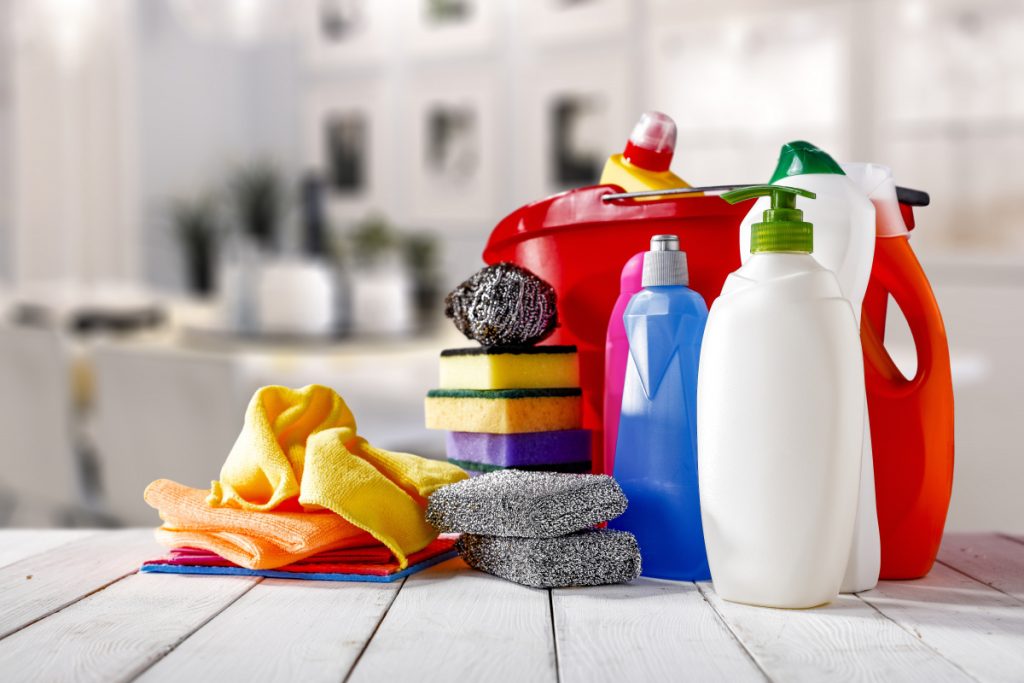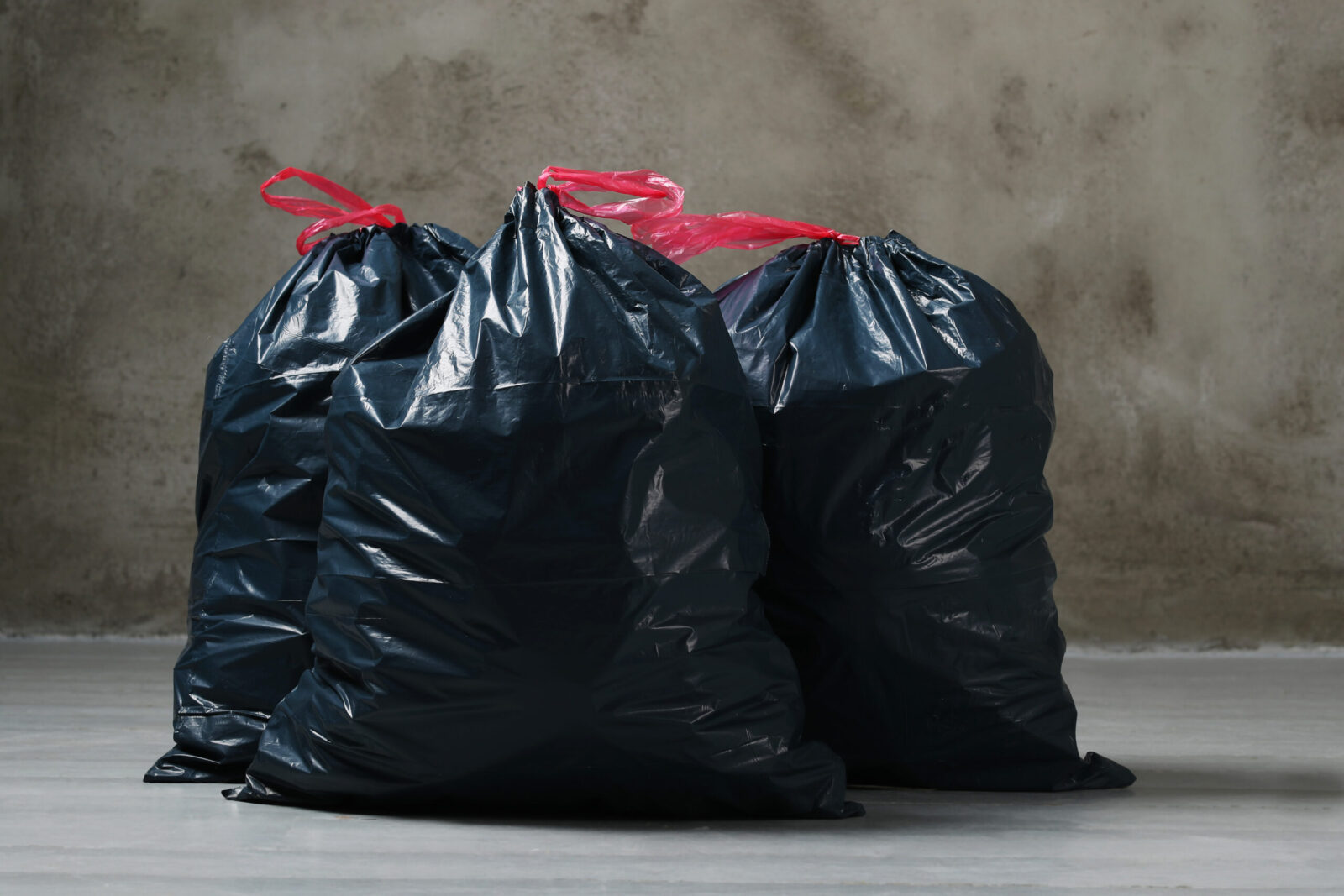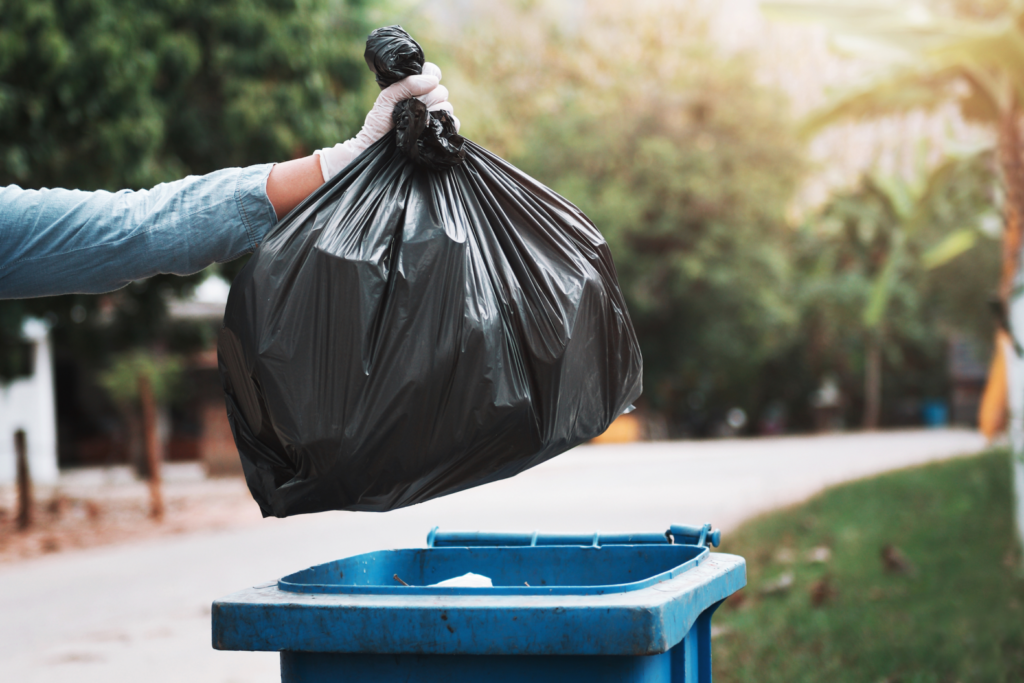
Choosing The Right Cleaning Supplies For Your Business – A Buyer’s Guide
Maintaining clean business premises is not just about appearance—it enhances employee well-being, creates a professional environment that delights customers, and...

Get 20€ off on your first order!
Struggling to decide between heavy-duty and standard garbage bags for your waste management needs? This article has you covered. We’ll break down the differences, highlight practical applications, and guide you to the perfect solution for your specific requirements—whether you’re handling light office waste or tackling heavy construction debris.
With expert insights and actionable advice, you’ll be equipped to choose the right bag for the job. Plus, we’ll go a step further and help you prepare for the next step in waste management—ensuring cleanliness and efficiency with complementary tools and products. Your waste management challenges stop here! Dive in to find out more.
For a comprehensive overview of waste management tools, check out our main article “Garbage Bags: Selecting The Right Waste Management Tools”.
| Feature | Standard Garbage Bags | Heavy-Duty Garbage Bags |
| Material | High-Density Polyethylene (HDPE) or thinner Low-Density Polyethylene (LDPE) | Thicker Low-Density Polyethylene (LDPE) or reinforced blends |
| Strength | Handles light waste (e.g., paper, tissues, light plastics) | Designed for heavy, sharp, or abrasive waste (e.g., metal, rubble) |
| Cost | Typically cheaper per unit | Higher cost due to enhanced durability |
| Common Uses | Home, office, lightweight kitchen waste | Construction sites, industrial settings, outdoor waste |

Standard garbage bags are cost-effective and perfect for managing lighter, everyday waste. These bags are typically made from HDPE, which is lightweight but durable enough for non-abrasive materials.
To explore more standard options for light waste management, visit our Garbage Bags category.
Heavy-duty garbage bags are designed to handle demanding conditions. They are made from thicker LDPE, which provides resistance to punctures and tears. If you’re managing industrial or outdoor waste, these bags are essential.
For additional cleaning products to complement your heavy-duty needs, consider Industrial Cleansers.
When selecting between standard and heavy-duty garbage bags, consider the following factors:
Understanding the materials used in garbage bags can help you choose the best option for your needs:
Learn more about material types and their applications in our sibling article “Understanding Garbage Bag Materials: Plastic, Biodegradable, and Compostable Options”.
Choosing the correct size is crucial for efficiency. Here is a quick sizing chart to guide you:
| Bag Size | Suitable Bin Volume | Example Use Case |
| 30 Litres | Small office or home bins | Light kitchen or office waste |
| 60 Litres | Medium bins | Cafes, schools, general recycling |
| 120 Litres | Large bins | Heavy outdoor or mixed waste |
| 240+ Litres | Industrial or large outdoor bins | Construction or event waste |
Explore our full range of garbage bags to find the size that suits your needs.
To streamline waste management, consider pairing your garbage bags with complementary cleaning tools:
For more insights into cleaning tools, check out our related article “How To Choose The Right Dust Pans And Brooms – A Buyer’s Guide”.
We hope this guide has provided valuable insights into selecting the right garbage bags for your needs, whether for lightweight home use or heavy-duty industrial tasks. By understanding key factors like material, strength, and application, you can make informed decisions that enhance efficiency and cleanliness.
Explore the full range of garbage bags on Droppe, featuring trusted options for every requirement. From standard bags for everyday waste to heavy-duty solutions for tougher tasks, we’ve got you covered.
Have questions or need personalized recommendations? Don’t hesitate to reach out—our team is always here to help make waste management simple and stress-free.
– The Droppe Team
Yes, but it may not be cost-effective. Heavy-duty bags are better suited for sharp or heavy waste, while standard bags are ideal for everyday use.
Yes, many brands offer biodegradable bags in both categories, providing an eco-friendly alternative for waste management.
Measure the bin’s height, width, and depth, and choose a bag with a slightly larger capacity to avoid overfilling.
Most heavy-duty bags are designed to resist punctures and leaks, making them suitable for liquid-heavy waste like food scraps or outdoor debris.
Standard and heavy-duty garbage bags made from recyclable plastics can be recycled if clean. Check local recycling guidelines for specifics.
Thank you! You've signed up for our newsletter.



















Maintaining clean business premises is not just about appearance—it enhances employee well-being, creates a professional environment that delights customers, and...

Not sure which cleaner is best for your floors? This article will provide you with all the information you need...

Choosing between solvent-based and water-based industrial cleansers can be tricky, but we’re here to make it easier. In this article,...

Maintaining clean business premises is not just about appearance—it enhances employee well-being, creates a professional environment that delights customers, and...

Not sure which cleaner is best for your floors? This article will provide you with all the information you need...

Choosing between solvent-based and water-based industrial cleansers can be tricky, but we’re here to make it easier. In this article,...
Get 10€ off on your first order!
Save 30% by buying directly from brands, and get an extra 10€ off orders over €100
Save 30% by buying directly form brands, and get an extra 10€ off orders over €100